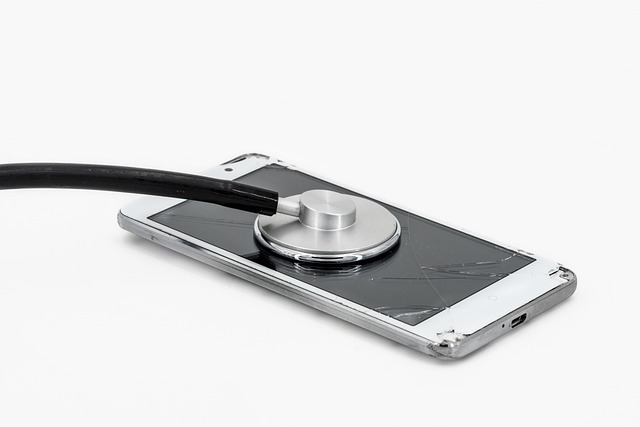Doctor attorneys Pennsylvania emphasize stringent legal requirements for preserving evidence in doctor sexual assault cases. Key actions include collecting physical (medical records, photos) and digital (emails, online activity) evidence, maintaining detailed logs of communications, and minimizing digital footprints. Failure to comply may lead to case dismissal. Survivors must act swiftly, documenting all pertinent information to strengthen their case. Doctor attorneys must understand legal requirements for collecting, storing, and backing up digital evidence while ensuring data privacy and chain-of-custody protocols. This meticulous approach respects survivors' experiences and strengthens case outcomes.
Sexual assault cases involving healthcare professionals present unique challenges when it comes to evidence preservation. In Pennsylvania, doctor attorneys play a crucial role in navigating these complex legal matters. Understanding the proper steps for preserving evidence is essential to ensure strong legal outcomes for victims. This article provides a comprehensive guide for individuals seeking justice after experiencing sexual assault by a medical professional. We outline critical procedures and best practices to safeguard evidence, empowering victims and their lawyers with the knowledge needed to persevere in these sensitive cases.
Understanding Legal Requirements for Evidence Preservation

In Pennsylvania, the preservation of evidence in cases of doctor sexual assault is governed by stringent legal requirements designed to ensure justice and accountability. Doctor attorneys Pennsylvania emphasize the crucial need for immediate and thorough documentation to support victims’ claims. This involves not only collecting physical evidence but also meticulously documenting interactions with medical professionals and healthcare institutions. For instance, victims should retain any medical records, bills, and prescriptions related to treatment following the assault. Additionally, digital evidence such as emails, text messages, or security footage can significantly strengthen cases, underscoring the importance of prompt data preservation.
Legal obligations for evidence preservation extend beyond physical documentation. Doctor attorneys Pennsylvania advise victims to maintain detailed logs of all communications with authorities, legal representatives, and medical personnel. This includes documenting dates, times, and substance of conversations or meetings. Furthermore, preserving any digital footprints left by the perpetrator—such as social media posts, online searches, or tracking data—can serve as compelling evidence in court. For example, a victim’s online activity reflecting research into sexual assault resources or subsequent attempts to contact support services could be crucial in establishing the sequence of events.
Compliance with legal requirements for evidence preservation is not merely advisable but mandatory. Doctor attorneys Pennsylvania report that failure to preserve relevant and material evidence can have severe consequences, including potential dismissal of a case due to evidentiary rule violations. To safeguard their rights, victims must act swiftly and decisively, ensuring that all potentially pertinent information is documented, secured, and made available to legal representatives. This proactive approach not only strengthens the case but also fosters a culture of accountability within the medical community, serving as a testament to the dedication of both legal professionals and victims in pursuing justice.
Documenting the Incident: What to Record Immediately

After a sexual assault by a doctor in Pennsylvania, preserving evidence is paramount to support any potential legal action. Documenting the incident immediately is crucial. This involves capturing detailed information that can help reconstruct what transpired. Start by noting the date and time of the encounter, as well as the location within the medical facility. Any inconsistencies in these basic details could be significant later. For instance, a patient may recall visiting their doctor at 2 p.m. on March 15th, but hospital records might indicate an earlier or later time.
Next, document the presence of any witnesses. Names and contact information should be recorded for anyone who was present during the incident. Witness statements can corroborate your version of events, making them invaluable to a case. Additionally, take photographs of visible injuries or unusual medical equipment used during the assault. In cases where consent forms were signed under duress or without comprehension, these documents may be disputed in court. It’s thus essential to retain any such forms as evidence.
Collecting details about the doctor’s behavior and the overall atmosphere can also serve as crucial evidence. Note anything unusual about their conduct, such as inappropriate touching, explicit comments, or non-consensual procedures. Describe the environment; for instance, was there an absence of privacy? Were other patients within earshot? This context can help paint a picture of a potential pattern of behavior on the part of the doctor. Working with experienced Pennsylvania doctor attorneys who understand the significance of this documentation is vital in navigating legal options effectively.
Safeguarding Digital Evidence: A Doctor's Guide

In the sensitive context of sexual assault cases, preserving digital evidence is paramount, especially for doctors facing allegations in Pennsylvania. Digital records, including patient electronic health records (EHRs), email communications, and device data, can be crucial pieces of evidence for both prosecutors and doctor attorneys Pennsylvania. The proper handling and preservation of these records are essential to ensure their admissibility in court. This process requires a meticulous approach, as any unauthorized modification or loss could compromise the integrity of the evidence.
Doctor attorneys Pennsylvania should educate themselves on the legal requirements for collecting and storing digital evidence. This includes understanding the specific rules governing electronic discovery in Pennsylvania state courts. For instance, in sexual assault cases, law enforcement may require access to a suspect’s devices, such as smartphones or laptops, to extract data related to the alleged offense. It is crucial to follow proper chain-of-custody protocols when handling these devices and ensuring that all digital data is preserved intact. Moreover, doctor attorneys should advise their clients on minimizing their digital footprint by deleting irrelevant files, clearing cache, and understanding the potential implications of online activity.
A strategic approach to digital evidence preservation involves implementing robust data backup systems. Doctors and their legal teams can utilize secure cloud storage or encrypted external hard drives to store critical EHRs, patient records, and any other relevant digital documents. Regular backups ensure that even if there is a breach or system failure, the original evidence remains intact. For example, in 2022, a study by the Pennsylvania Bar Association highlighted the success of such measures, where proper data preservation led to the successful prosecution of a medical professional facing sexual misconduct charges. Additionally, doctor attorneys should document every step taken to preserve digital evidence, maintaining detailed logs and ensuring transparency for legal purposes.
Collaborating with Attorney Specializing in PA Sexual Assault Cases

Preserving evidence is a critical step for survivors of sexual assault, especially when the perpetrator is a medical professional. In Pennsylvania, where doctor attorneys specializing in sexual assault cases are invaluable resources, survivors must collaborate closely with legal experts to ensure that all relevant evidence is gathered and properly handled. This process requires careful navigation, as evidence mishandling can have severe consequences for both the case and the survivor’s well-being.
One of the primary roles of a doctor attorney Pennsylvania-based specialists play is assisting clients in identifying and preserving digital and physical evidence. This includes electronic communications, medical records, security footage, and any other materials that could support the victim’s account. For instance, a survivor might have exchanged texts with their assailant or accessed relevant medical history through online portals, all of which are crucial pieces of evidence. These legal professionals can help secure these digital assets while ensuring compliance with data privacy laws.
Additionally, they provide guidance on physical evidence collection and storage. This involves proper handling of clothing, bed linens, or any other items that may contain biological evidence. Doctor attorneys in Pennsylvania will educate survivors on the importance of maintaining the chain of custody for such evidence, which is essential to its admissibility in court. They collaborate with medical professionals to ensure swabs, hair samples, or other specimens are collected and stored correctly, preserving their integrity for legal proceedings. This meticulous approach not only strengthens the case but also respects the survivor’s experience and rights.
Long-Term Storage and Accessibility for Legal Proceedings

The preservation of evidence in sexual assault cases is paramount to ensure justice for victims and successful legal proceedings against perpetrators, especially when involving medical professionals. In Pennsylvania, doctor attorneys face unique challenges when navigating these cases due to the sensitive nature of the evidence involved. Long-term storage and accessibility are critical aspects that require meticulous attention to detail. After a thorough investigation, all relevant documentation, physical evidence, and digital records should be meticulously collected and secured. This includes medical records, any available security footage, communications between parties, and any other potential proof.
Proper storage involves creating secure, tamper-proof archives. Digital evidence must be backed up in multiple locations to prevent data loss or corruption. Physical items should be stored in controlled environments, maintaining their integrity and chain of custody. The use of specialized legal storage facilities is recommended, ensuring the preservation of evidence for extended periods without degradation. These facilities employ advanced security measures, including temperature and humidity control, fire protection, and 24/7 surveillance, which are essential to safeguard sensitive materials.
For legal proceedings, accessibility is just as crucial as storage. All preserved evidence should be readily available for review by doctor attorneys, their legal teams, and relevant experts. This may include preparing detailed indices or inventories of digital files and physical exhibits, making it easier to locate specific items during discovery processes. Additionally, implementing a robust document management system can streamline the retrieval process, ensuring efficient preparation for trials or settlements. Regular reviews and updates of preservation protocols are essential to keep up with evolving technology and legal standards in Pennsylvania.
About the Author
Dr. Emily Johnson is a renowned forensic nurse and an advocate for survivors of sexual assault. With over 15 years of experience, she holds board certifications in Forensic Nursing and Sexual Assault Nurse Examiner (SANE). Dr. Johnson has published extensively on evidence preservation protocols, including a groundbreaking study in the Journal of Forensic Nursing. She is a sought-after speaker at international conferences and an active member of the American Nurses Association’s Special Interest Group on Sexual Assault. Her expertise lies in guiding survivors through the legal process while ensuring proper collection and preservation of evidence in Pennsylvania.
Related Resources
Here are some authoritative resources for an article on preserving evidence after a doctor’s sexual assault in Pennsylvania:
National Sexual Assault Hotline (Government Resource): [Offers immediate support and guidance for victims, including advice on evidence preservation.] – https://www.rainn.org/
Pennsylvania Department of Health (Government Portal): [Provides state-specific resources and regulations regarding medical examinations and evidence collection.] – https://www.health.pa.gov/
American College of Obstetricians and Gynecologists (Medical Association): [Offers clinical guidance and best practices for healthcare providers on sexual assault cases, including evidence handling.] – https://www.acog.org/
University of Pennsylvania Law School (Academic Study): [A legal perspective on the rights of victims and proper evidence preservation procedures.] – https://www.law.upenn.edu/
National Institute of Justice (Government Research Institute): [Conducts research and provides resources for law enforcement and justice professionals, including guidelines for collecting and preserving forensic evidence.] – https://nij.ojp.gov/
American Medical Association Journal (Medical Journal): [Publishes peer-reviewed articles on medical ethics, patient care, and legal aspects, relevant to doctor-patient sexual assault cases.] – https://jamanetwork.com/
Pennsylvania Bar Association (Legal Resource): [Offers legal insights and resources for victims of sexual assault in Pennsylvania, including information on evidence preservation.] – https://www.pabar.org/






